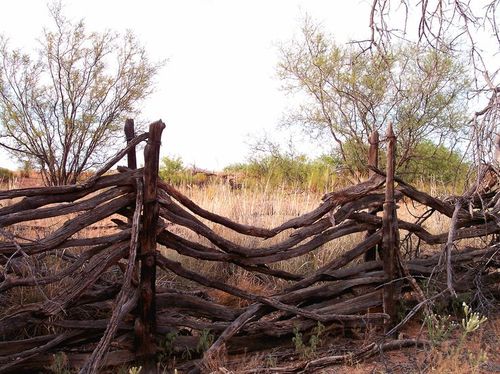Don’t Remove a Fence Until You Know Why It Was Built
 Sunday, December 10, 2017 at 06:28AM
Sunday, December 10, 2017 at 06:28AM  “Pursue peace with all people, and holiness, without which no one will see the Lord.” Hebrews 12:14
“Pursue peace with all people, and holiness, without which no one will see the Lord.” Hebrews 12:14
“GOOD FENCES MAKE GOOD NEIGHBORS.” So goes an old saying, repeated and made famous in “The Mending Wall” by Robert Frost. But we also have Ronald Reagan’s “Tear down this wall,” and Donald Trump’s “Build the wall.” The ambivalence is maddening. Walls, fences, barricades, hedges—all of them represent a boundary that forbids entrance or restricts exit. Frost’s poem presents this conundrum: “Before I built a wall I’d ask to know, What I was walling in or walling out, And to whom I was like to give offence.” It’s all summed up in the motive of the fence-builder. We find the answer by asking why the fence was erected in the first place.
Fences either wall in or wall out. We put up fences to provide safe places for our babies, our pets or our possessions. Fences also keep thieves, predators and vandals from accessing our treasures. Fences stop encroachment on our property and unlawful use of our lands. If the world was free from danger, we could do away with fences. It is the height of naiveté, however, to make such an irresponsible assumption. We use passwords, fingerprint recognition software and encrypted formulas to protect our identities. No one puts his or her social security number out in the public eye. Police forces, standing armies and elaborate security systems, all testify to the perils of living in the modern world.
What’s going on? The incessant push of new ideas, new goals and new methods force constant change on the landscape. In their wake, people perceive old paradigms as anachronisms that need to be updated or eliminated. We redefine old enemies, reevaluate challenges, and realign our purposes to suit new perceptions of the world around us. In the transition, the eagerness for change often calls the shots rather than a common-sense assessment of reality. We rip before we review. Some don’t like fences because they’re ugly, inconvenient, too much trouble to keep up, or they imply bigotry. To be sure, some things should change. We don’t need better coal shovels for our furnaces, or a better way to keep horses from soiling our highways. But, there are other aspects of life that must never change—like the value of hard work, the need for ethical behavior or respect for each other. When we tear down fences that protect timeless truths, we open ourselves up for disaster.
The Scriptures establish guidelines for righteous living and basic holiness. Some use the term standards. Decry, resent or ridicule them if you like, but they serve a valuable purpose. Think of guidelines as guardrails over a bridge or a dangerous stretch of roadway. The world’s longest bridge is the Danyang–Kunshan Grand Bridge in China, spanning 102.4 miles (165 kilometers). Technically, it is possible for one to cross this bridge day or night, in all sorts of weather, without guardrails. But, who would dare? Granted, the guardrails do not make the bridge, but they do insure the safety of the travelers. The guardrails require maintenance, and sometimes motorists run into them and suffer injuries. Nevertheless, no one is suggesting that the Chinese government take them down for being a nuisance.
Driving out across the countryside, I’ve seen plenty of broken fences and wrecked walls. Usually, they surround vacant lots, dilapidated barns or abandoned houses. Fabulous estates and expensive holdings, however, stand secure behind fences and walls. It would seem, then, that fences are a function of the value of one’s possessions. In the end, holiness represents the measure of respect you give to your eternal possessions.

Reader Comments